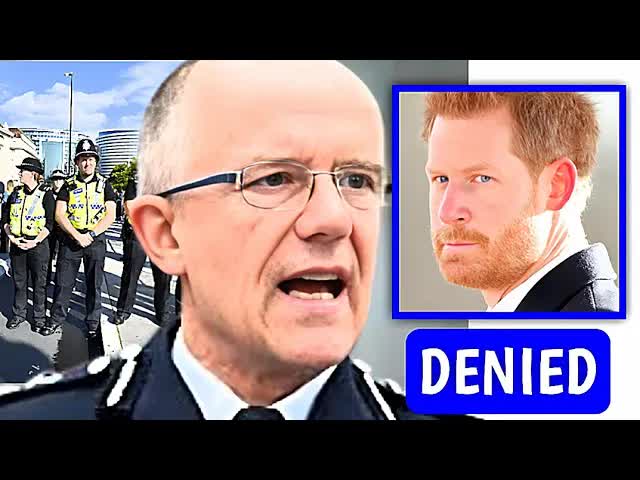As Prince Harry prepares for his return to the UK for the Invictus Games 2025, he faces a significant hurdle: the Metropolitan Police have declined his request for personal security.
This decision not only reflects the changing dynamics of royal privilege but also raises broader questions about safety, public duty, and the evolving role of the monarchy in contemporary society.
Imagine stepping back into a country that has seen your life unfold under a microscope, especially after stepping down from royal duties.
For Harry, this visit is more than just attending an event he founded; it’s a chance to reconnect with the public amid a backdrop of complex relationships.
Yet, the refusal of police protection signifies a notable shift in how former royals are treated, highlighting the stark reality of his current status.
The implications of this denial extend beyond Harry himself.
It prompts us to ask whether individuals like him should automatically receive security, or if such privileges vanish once they leave their royal roles.
The British public is keenly interested in this debate, as it touches on issues of entitlement, public service, and the monarchy’s relevance in modern Britain.
Prince Harry’s journey has been anything but ordinary.
Once a beloved member of the royal family, he stepped away from official duties, a move that redefined how he is perceived.
Now, as he navigates life without the extensive security detail that once accompanied him, the risks he faces as a public figure become painfully clear.
From intrusive paparazzi to potential threats, the need for protection remains pressing.
The Metropolitan Police’s refusal stems from established government policies that prioritize security for working royals only.
Since Harry no longer holds that title, the expectation for taxpayer-funded protection has evaporated.
This decision underscores the notion that royal status does not equate to automatic privilege in today’s society.
But should the ability to fund one’s own security change the narrative?
While some media outlets frame this as a personal snub against Harry, the reality is more nuanced.
The decision is steeped in policy considerations and the potential ramifications of setting a precedent.
Granting Harry security could open the floodgates for similar requests from others, blurring the lines between royal support and public service neutrality.
In the realm of royalty, security is not merely about physical safety; it encompasses reputation, perception, and influence.
Harry’s appeal for protection is particularly poignant given the Invictus Games’ significance.
This event celebrates injured veterans and embodies his commitment to service and leadership.
Shouldn’t his association with such a noble cause warrant enhanced protection?
Public opinion on this matter is decidedly mixed.
Many Brits harbor longstanding concerns regarding the monarchy’s expenditures, including security costs.
Some argue that Harry forfeited his right to such privileges when he distanced himself from royal responsibilities.
Conversely, there remains a strong faction supporting Harry, particularly due to his advocacy for veterans and mental health awareness.
This situation represents a pivotal moment for the monarchy, illustrating a stricter interpretation of royal duty and benefits.
The UK government’s stance signals a shift toward greater accountability and transparency, as public tolerance for royal spending wanes.
By denying Harry security, officials are asserting that being royal no longer guarantees immunity from policy restrictions.
What can we glean from this unfolding drama?
First, it highlights the evolving expectations for public figures, even those who have stepped back from their roles.
They must navigate a landscape where personal responsibility intersects with public interest.
Second, it raises critical questions about the nature of privilege.
What entitlements remain for someone with Harry’s background once they step away from royal duties?
Moreover, the symbolism of security cannot be overlooked.
It serves as a reflection of societal values regarding protection and privilege.
Harry’s denied request sends a clear message that the monarchy is not above the law, a significant departure from historical norms.
As Prince Harry gears up for the Invictus Games, this security dilemma will undoubtedly linger in public discourse.
His experience may serve as a catalyst for broader conversations about the responsibilities of public figures and the societal expectations placed upon them.
The ongoing dialogue surrounding this issue invites us to reconsider our perspectives on fame, security, and the intricate relationship between public service and personal freedom.
Ultimately, while this chapter in Harry’s life presents challenges, it also offers opportunities for redefining what it means to be a modern royal in an age that increasingly values accountability and transparency.
As the story unfolds, it will be fascinating to see how Harry navigates these complexities and what it means for the future of the monarchy itself.










